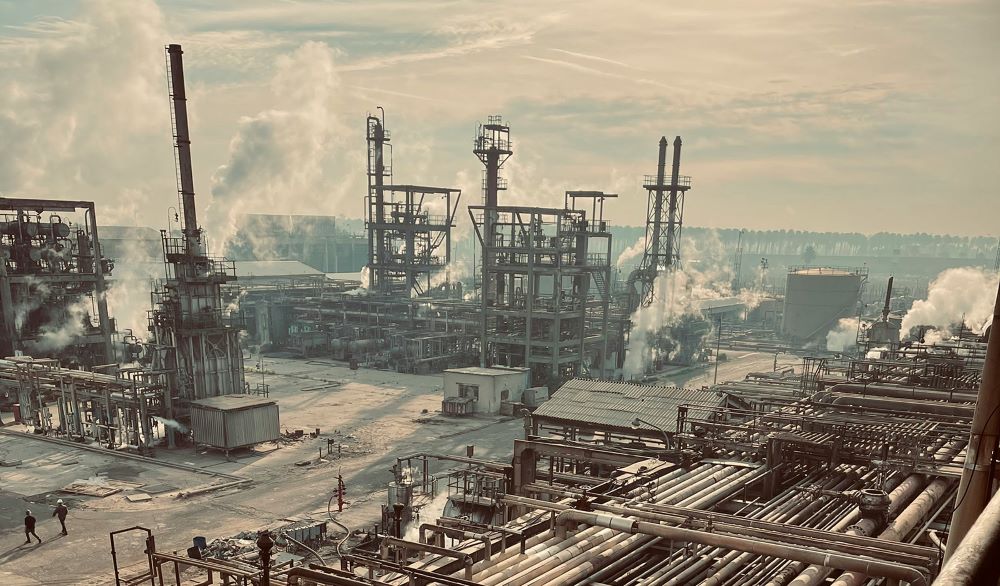
(Unsplash/Diyar Al Maamouri)
Lent has traditionally been a time of fasting and abstinence, and there is no better way for a contemporary Christian to celebrate Lent than by fasting from carbon to save the world from global warming.
In the pre-Vatican II church, we took Lent very seriously with mandatory fasting and abstinence. Under the fasting rules, you could not eat between meals, and your breakfast and lunch combined had to be less than what you ate for dinner. The abstinence rules forbade meat on Fridays and Saturdays and allowed meat only once a day on other days. Sunday was an exception, when fasting and abstinence were not required.
In theory, violating these rules was a mortal sin. You could go to hell if you broke your fast or ate meat. But as the church began to emphasize God as a loving Father rather than a punishing judge, after the Second Vatican Council (1962-1965), it was impossible to believe God would throw a person into hell for eating meat on Friday.
Advertisement
In 1966, Pope Paul VI strongly recommended fasting and abstinence but no longer required it under the pain of sin. He also allowed bishops' conferences to replace fasting and abstinence with other forms of penitence or acts of charity and piety.
The pre-1966 abstinence rules applied to almost everyone, but fasting was mandatory only for those aged 21 to 59. My father was furious when the rules changed because he had just turned 60, so he would have been exempt anyway, and I had just turned 21 and would have been bound by the old rules. When I turned 21, the rules no longer applied.
Hundreds of years ago, when the rules were in place, they especially hit the rich because the poor were always short on food and rarely ate meat. In other words, during Lent, the rules required the rich to live like the poor.
Today during Lent, some Catholics still observe fasting and abstinence or try to live a simple lifestyle. For example, a household might try to live on $600 a week, which is the U.S. poverty line today for a family of four. The money they save is then given to the poor. Such practices are certainly in the right spirit.
Another approach would be to fast from carbon, to reduce one's carbon footprint.
Today, people in the First World burn much more carbon than those in poor countries. During Lent, we should try to reduce our carbon consumption to the level of poor people. If we do not cut our carbon consumption, we may not go to hell, but our grandchildren will live in a hell we have created.
Time is running out. Technological developments are promising, but we don't have 50 years to get our act together. Weather patterns are already changing. We are approaching tipping points that could permanently melt ice in Greenland and Antarctica. Coral reefs, the nurseries of the seas, could die. Permafrost in Siberia could melt and release enough methane gas to change the world for thousands of years.
The social, economic and political consequences of passing these tipping points will be catastrophic. Supply chains will be permanently disrupted. Nations will collapse into gangs fighting over food and other resources. Plague, famine and war will break out all around the world. Democracy will be replaced by martial law. Climate refugees will be shot when they try to cross borders.
In the face of these predictions, despair is tempting. But as Jesus said, some demons are not cast out except by prayer and fasting (Matthew 17:21).
Lent should be a time for prayer and fasting to stop climate change. It is an act of penance for what we in the rich world have done, and it is a prayer for help in avoiding catastrophe.
Will anything we do as individuals make a difference? In the eyes of the world, no. In the eyes of faith, we must have hope. Christians must have faith to be leaven, to be mustard seeds. Our lives, as little as they are, must be prophetic witnesses in our world. To follow Christ means you don't stop trying even if you think you will fail.
So how can Christians fast from carbon during Lent (and save money)?
First, be very traditional: Don't eat meat, especially beef, during Lent. Our beef consumption produces huge amounts of greenhouse gases. It also converts carbon-capturing forests into pastures, especially in the Amazon.
Second, use public transportation as much as possible. True, it takes longer, but you can do your email, read a book or pray while you ride. Consolidate your auto trips as much as possible. Walking will also be good exercise.
Third, reduce or eliminate your heating and air conditioning. Wear thick sweaters and caps indoors in the winter; T-shirts, shorts and sandals in the summer. If possible, reduce the number of showers you take in a week, and make them short.
Fourth, don't use your clothes dryer, especially for towels, sweatshirts and other nonpermapress items. They can dry in the air either indoors or outdoors, and they will last longer. Also, air dry your dishes from the dishwasher.
(Long term, you should eliminate gas appliances and replace your appliances with more energy-efficient ones like heat pumps. And, of course, vote for candidates who will enact government programs and regulations to deal with global warming.)
If every Catholic in the country spent Lent in this way, it would have an effect and would be a prophetic witness to the rest of the world. The demon of global warming can only be cast out by prayer and fasting. This Lent, let's fast from carbon.








